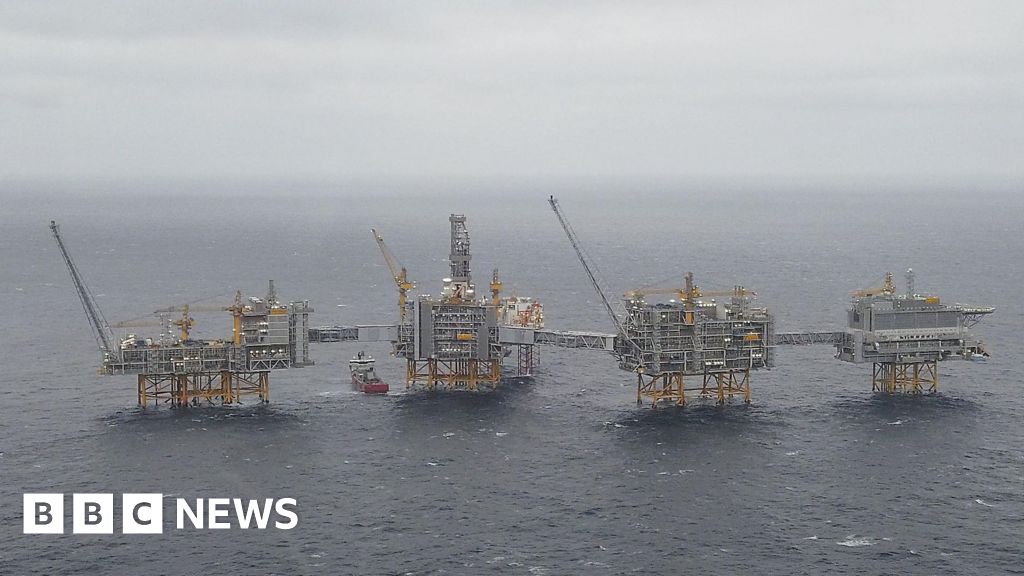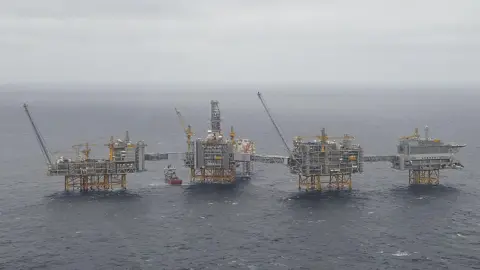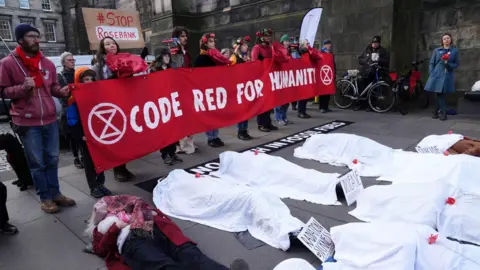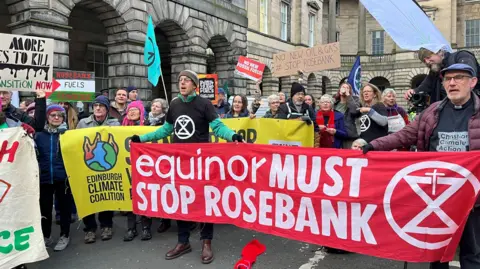Jobs
Revoking Rosebank licence would cost ‘thousands of jobs’

 Reuters
ReutersThe developer of the UK’s largest untapped oil field has told a court that revoking its licence would cost thousands of jobs and hundreds of millions of pounds.
Environmental campaigners are challenging the UK government’s decision to approve Rosebank off Shetland and the Jackdaw gas field in the North Sea.
Equinor, which owns Rosebank along with Ithaca Energy, said it was investing £2.2bn in the project, providing employment for 4,000 people.
Shell, which owns Jackdaw, said revoking its licence would also waste huge sums of money and have a damaging impact on jobs.
John MacGregor KC, for Equinor, told the judicial review at the Court of Session in Edinburgh that “certainty and predictability is critical in highly-regulated industries.”
“Those making major investment decisions need to be able to ascertain the risk of proceeding,” he added.
Documents submitted to the court state that production at Rosebank is expected to begin in 2026/27.
 PA Media
PA MediaJackdaw was approved in June 2022 and Rosebank in September 2023, both under the previous Conservative administration.
As part of the consenting process for the fields, the UK government was required to consider environmental impact assessments, provided by the companies.
These took into account emissions caused by the process of extracting oil and gas but not the greenhouse gases released when the fossil fuels are eventually burned, known as downstream emissions.
Since then the UK Supreme Court ruled, in a case involving plans to drill an oil well near London’s Gatwick Airport, that downstream emissions should be included in an environmental impact assessment.
 PA Media
PA MediaAt the Court of Session, Equinor, Ithaca Energy, Shell and the government all accept that the Supreme Court ruling means the licences for Rosebank and Jackdaw were granted unlawfully.
But the companies say they provided full and accurate environmental assessments in good faith under the law as it was understood at the time; they were explicitly told by the government not to assess downstream emissions; and they should not be “punished” for a Supreme Court decision which they say they could not have foreseen.
On that basis they want the judge, Lord Ericht, to allow them to continue working towards starting production in the fields.
Shell’s advocate, Christine O’Neill KC, told the court that production at Jackdaw was expected to run from 2026 to around 2034.
The company, she said, was investing £1.1bn in the project, providing jobs for “at least 1,000 people” between 2023 and 2025.
If it were stopped, she added, it would mean that “more than three quarters of a billion pounds that’s already been spent will have been wasted.”
Even a 12 month suspension, added Ms O’Neill, would be likely to cost Shell “at least £200m.”
Call to halt development
Environmental groups Greenpeace and Uplift, who brought the case, are asking for an immediate pause in the developments while additional assessments about downstream emissions from the fields are carried out.
If Lord Ericht sides with the campaigners, the final decision on whether or not extraction of oil and gas should proceed could end up on the desk of the Energy Secretary, Ed Miliband.
The hearing in Edinburgh continues but a decision is not expected for some weeks or months.









